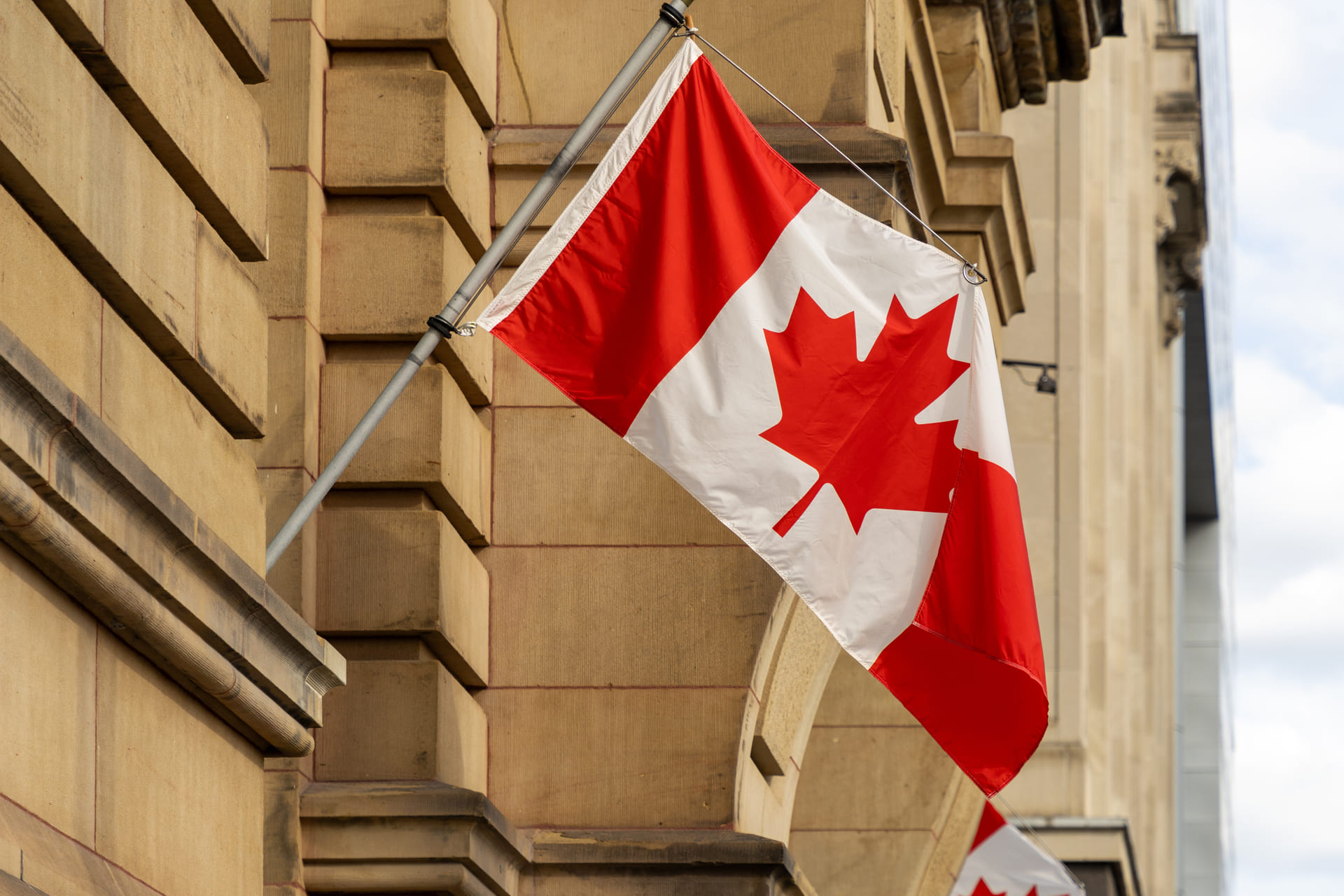
Becoming a Canadian permanent resident is possible through multiple immigration pathways, including Express Entry, Provincial Nominee Programs, family sponsorship, and business immigration streams.
At Kingwell Immigration Law, we provide comprehensive legal support for permanent residence applications, from routine submissions to complex Federal Court litigation when applications face rejection.
Founded by Daniel Kingwell with over 20 years of specialized immigration law experience, our Toronto-based firm ensures every client receives personalized strategies tailored to their unique circumstances.
Canadian permanent residence opens doors to healthcare, education, and work opportunities across all provinces and territories, but the application process involves numerous requirements that can result in costly delays or refusals without proper legal guidance.
Unlike general practice firms, we specialize exclusively in Canadian immigration law, with extensive experience handling complex inadmissibility cases, urgent matters, and Federal Court appeals when standard applications face rejection.
Our approach goes beyond filing applications – we get to know each specific person and their situation to provide tailored, innovative, and efficient solutions that help them achieve their goals. We have successfully defended clients’ right to stay in Canada, helped them build foundations to support relatives coming to Canada, and acted as advocates when hope seemed lost.
Our Federal Court litigation experience sets us apart from firms that handle only routine applications.
✔️ We have successfully challenged IRCC decisions in cases such as Musa v. Minister of Citizenship and Immigration (2012 FC 298), where we secured reconsideration for PRRA applicants from Israel, and D.G. v. Minister of Citizenship and Immigration (2021 FC 1468), where we overturned study permit refusals that failed to address applicants’ explanations of their educational plans.
Don’t navigate the Canadian immigration system alone or risk your future with inadequate representation. Our comprehensive approach addresses both immediate application needs and long-term immigration planning, ensuring you’re positioned for success at every stage of your journey to permanent residence and beyond.
As your trusted immigration lawyer in Toronto, we’re here to guide you through every step of the process. Book a consultation today.
A permanent resident is someone granted the legal right to live in Canada indefinitely, but who is not a Canadian citizen. Permanent residents usually keep their original citizenship while enjoying the ability to live, work, and study anywhere in Canada.
Permanent residents enjoy most rights as Canadian citizens, including access to healthcare through provincial health insurance plans and social services. The main differences are that permanent residents cannot vote in federal elections, run for political office, or hold certain government positions requiring high-level security clearances.
To maintain your permanent resident status, you must meet residency obligations by being physically present in Canada for at least 730 days within every five-year period. This requirement does not need to be continuous, and certain exceptions apply for Crown servants and family members of Canadian citizens working abroad.
💡 Additional reading: Canadian citizen vs permanent resident
📌 The IRCC’s Explore Immigration Programs tool helps you answer a few quick questions about what you want to do in Canada — work, study, join family, etc. — and then shows you the programs you may be eligible for
Express Entry manages applications for three federal economic programs: the Federal Skilled Worker Program, Canadian Experience Class, and Federal Skilled Trades Program.
Candidates create online profiles and enter a pool where draws happen periodically. The highest-scoring candidates receive Invitations to Apply (ITAs).
Once invited, candidates have 60 days to submit a complete application with all supporting documents. After IRCC receives your complete application, most Express Entry permanent residence decisions are made within approximately six months under the service standard.
⚖️ Meeting minimum eligibility does not guarantee an invitation, since CRS cut-off scores vary based on the number of candidates and the immigration targets.
Each province and territory (except Quebec) runs its own immigration programs to meet local labour market needs. If you receive a nomination through Express Entry-aligned PNP streams, you earn an extra 600 CRS points, which significantly increases your chances of receiving an Invitation to Apply (ITA), though it does not absolutely guarantee one.
PNP streams differ widely between provinces — some are Express Entry-enhanced, others are base streams operating outside the Express Entry system. Common streams include skilled worker, business/investor, and international graduate streams.
⚖️ The process generally involves two steps: obtaining a provincial nomination, then submitting a permanent residence application to IRCC. Processing times can vary: for some enhanced PNP streams, it may take only a few months, while other non-Express Entry streams can take 12–18 months or longer, depending on the specific province and completeness of the application.

Canadian citizens and permanent residents may sponsor eligible family members for permanent residence. Eligible relationships include spouses, common-law partners, dependent children, parents, and grandparents.
Sponsors must show the relationship is genuine and must meet minimum income requirements for most sponsorship classes. The person being sponsored must pass medical exams and security checks, and both parties must sign an undertaking to provide financial support.
⚖️ Processing times vary by relationship type and whether the application is inland or abroad. Spousal or partner sponsorships (especially if the sponsor is in Canada) typically take around 12 months, while parent and grandparent sponsorships often take 20-24 months or more, due in part to annual intake caps and high demand.
Quebec operates an autonomous immigration system under the Canada–Québec Accord. Candidates selected by Quebec receive a Certificat de sélection du Québec (CSQ) before applying to IRCC for permanent residence.
Quebec offers several options, including the Québec Skilled Worker Program (RSWP) and the Québec Experience Program (PEQ), for those with study or work experience in Quebec. Business and entrepreneur streams also exist.
Eligibility criteria vary by stream but often include French language proficiency, demonstrated intent to reside in Quebec, and sometimes work or educational connections to the province.
Under many programs, applicants must show proficiency in French; the required level depends on the stream. The selection grid in the Skilled Worker program gives greater weight to French competence and Quebec-specific ties (such as employment in Quebec, education there, or having a job offer).
⚖️ Requirements and processing times differ from other provinces due to Quebec’s unique criteria and autonomy.
Canada offers several pathways for entrepreneurs and investors seeking permanent residence through business activities.
The Start-Up Visa Program requires support from a designated venture capital fund, angel investor group, or business incubator. Applicants must demonstrate that their business is innovative, has the potential to create jobs for Canadians, and can compete globally.
Designated organizations must provide a letter of support, and minimum investment thresholds vary by organization type.
The Self-Employed Persons Program applies to individuals with relevant experience in cultural activities or athletics. Applicants must show both the intent and ability to become economically established in Canada by creating their own employment and making a significant contribution to Canadian cultural or athletic life.
The Atlantic Immigration Program helps designated employers in New Brunswick, Nova Scotia, Prince Edward Island, and Newfoundland and Labrador hire skilled foreign workers to fill labour shortages.
To qualify, candidates must have a valid job offer from a designated employer and meet requirements for education, language ability, and relevant work experience. Applicants also need to show settlement funds unless already working in Canada. The program includes settlement support services to help families integrate into Atlantic communities.
⚖️ Processing times are often faster than other immigration streams due to employer involvement and provincial support, typically taking about 6–12 months for complete applications.
Contact Kingwell Immigration Law at 416.988.8853 to explore which immigration pathway best suits your situation and maximize your chances of approval.
All economic immigration programs require proof of English or French ability through approved tests. For English, applicants can take IELTS General Training or CELPIP General. For French, TEF Canada and TCF Canada are accepted.
Minimum Canadian Language Benchmark (CLB) levels vary by program:
Provincial Nominee Programs may set lower or occupation-specific requirements. Test results are valid for two years, and higher scores can significantly boost Express Entry rankings, helping offset lower points in other areas.
If you completed your education outside Canada, you may need an Educational Credential Assessment (ECA) to show how your degree compares to Canadian standards. An ECA is mandatory for most Express Entry applicants and many Provincial Nominee Programs when claiming education points.
Approved organizations include WES, ICAS, CES (University of Toronto), IQAS, and ICES. Physicians must use the Medical Council of Canada, and pharmacists must use the Pharmacy Examining Board of Canada.
Processing times range from 4 to 8 weeks once all documents are received. ECAs are valid for five years. In most cases, only your highest completed credential needs to be assessed, though multiple assessments can sometimes increase your CRS score.
Most economic immigration programs require skilled work experience classified under the National Occupational Classification (NOC) system in TEER categories 0, 1, 2, or 3, covering management, professional, technical, and skilled trades positions.
Work experience must be documented with reference letters on company letterhead detailing job duties, employment dates, hours per week, and salary. These must be signed by a supervisor or HR representative and align with NOC descriptions.
Applicants under the Federal Skilled Worker or Federal Skilled Trades programs need to show proof of settlement funds to support themselves and any family members with them.
As of July 2025, the required amounts for families range from CAD $15,263 for one person to CAD $28,362 for a family of four, increasing for larger families
⚖️ If you’re applying under the Canadian Experience Class or have a valid job offer, this proof of funds requirement is not required.
To satisfy the requirement, acceptable proof includes official bank statements and investment account details, showing your name, account number, current balance, and average balance (often over the past 6 months).
The funds must be liquid, available at both the time of application and when the permanent resident visa is issued. You cannot use borrowed money or equity in real property.

All permanent residence applicants and their family members must complete medical examinations by panel physicians approved by IRCC. These examinations assess whether applicants have health conditions that could pose public health risks or create excessive demand on Canadian healthcare services.
Panel physicians conduct physical examinations, review medical histories, and may require additional tests based on age, destination province, and health conditions. The examination includes chest X-rays for applicants over 11 years old and blood tests when medically indicated.
Medical examination results are valid for 12 months, and the examination should be completed as close as possible to your application submission date. IRCC provides a list of panel physicians in each country through their website, and appointments must be booked directly with approved physicians.
Medical inadmissibility can occur if an applicant’s health condition is likely to:
Excessive demand is currently defined as projected costs exceeding CAD $26,220 annually (three times the average per-capita cost as of 2025).
This threshold does not apply to certain family sponsorship categories, including dependent children, spouses, common-law partners, refugees, and protected persons. However, these applicants can still be found inadmissible for public health or safety risks.
If IRCC believes you may be medically inadmissible, you will first receive a procedural fairness letter outlining the concerns. This gives you an opportunity to respond with additional evidence, such as updated medical records or a cost-mitigation plan, before a final decision is made.
IRCC conducts thorough background checks on all permanent residence applicants, covering criminal history, security screening, and identity verification. These checks involve Canadian agencies such as the RCMP, CBSA, and CSIS, along with international partners. They can significantly affect processing timelines.
Applicants must provide police certificates from every country where they have lived for six months or more since age 18. Certificates must be issued by designated authorities and meet IRCC’s validity requirements, which vary by country.
Security screening assesses potential risks to national security, including terrorism, espionage, human rights violations, and serious criminality. This process is confidential, and applicants usually receive limited details about specific concerns or investigation timelines.
Our team assists applicants in preparing required police certificates, addressing admissibility concerns early, and ensuring documentation meets IRCC standards to reduce avoidable delays.
✔️ Medical, security, and background requirements can feel overwhelming, especially when delays or inadmissibility concerns put your family’s future at risk. At Kingwell Immigration Law, our team helps clients prepare for these steps in advance, reducing the chance of unexpected issues that could derail an application.
Get experienced guidance on document preparation and medical examination requirements from our experienced immigration team.
The application process begins with determining your eligibility for specific programs and creating the appropriate profile or application. Express Entry candidates start with an online profile, while other programs may require direct applications to provincial governments or IRCC.
Your profile must be complete and accurate, as IRCC uses this information for initial assessments and invitation decisions. Updates are allowed and sometimes necessary if your circumstances change, but significant changes may require profile recreation or application withdrawal.
Document preparation should begin before profile creation, as you’ll need specific information about education, work history, language test results, and other credentials to complete your application accurately.
Document requirements vary by program but typically include identity documents, language test results, education credential assessments, work experience letters, and proof of funds. All documents must be translated into English or French by certified translators if originally in other languages.
Original documents should never be submitted unless specifically requested. Instead, provide clear, legible copies that are certified by notaries public or commissioners of oaths. Some documents, like police certificates, have specific validity periods and must be current when applications are submitted.
Document authenticity is verified through various means, including direct contact with issuing institutions. False or misleading documentation can result in application refusal and potential bars to future applications, making accuracy and honesty essential throughout the process.


Complete applications include all required forms, supporting documents, and fees. Incomplete applications are returned unprocessed, causing significant delays. IRCC provides detailed checklists for each program to help ensure completeness before submission.
Processing times vary by program and individual circumstances but are regularly updated on IRCC’s website. Express Entry applications target six-month processing, while family sponsorships and provincial programs may take 12 to 24 months or longer.
Applications are processed in the order received, but certain factors can cause delays, including incomplete documentation, requests for additional information, medical issues, security concerns, or the need for interviews. Responding promptly to IRCC requests helps minimize processing delays.
We help clients navigate each step of the application process, ensuring completeness and accuracy before submission while developing contingency plans for potential complications that could arise during processing.
Criminal convictions, immigration violations, health problems, and security concerns can make individuals inadmissible to Canada. These issues don’t automatically prevent permanent residence but require careful legal assessment and often specialized applications like Temporary Resident Permits or Criminal Rehabilitation.
Medical inadmissibility occurs when health conditions might pose public health risks or create excessive demand on healthcare services, with the threshold set at $26,220 annually or $131,100 over five years as of 2025.
✔️ Our firm has successfully challenged inadmissibility determinations through Federal Court applications, as seen in cases like O.J. v Minister of Citizenship and Immigration (2019 FC 684), where we secured reconsideration for a PRRA applicant whose evidence was improperly rejected by the immigration officer.
Refused applications can often be challenged through various mechanisms, depending on the program and refusal reasons. Express Entry and economic program refusals may be addressed through Federal Court judicial review, while family sponsorship refusals can sometimes be appealed to the Immigration Appeal Division.
Procedural fairness violations, inadequate consideration of evidence, and unreasonable decision-making are common grounds for successful challenges. Our experience includes cases like D.G. v Minister of Citizenship and Immigration (2021 FC 1468), where we overturned study permit refusals that ignored applicants’ explanations about their educational plans.
Time limits for appeals and judicial reviews are strict, often requiring action within 30 to 60 days of receiving refusal decisions. Early legal consultation helps identify viable challenge options and ensures compliance with procedural requirements.
Blended families, adoption cases, common-law partnerships, and dependent children over 22 often create unique challenges in family sponsorship applications.
IRCC requires extensive documentation, and genuineness assessments are particularly strict for arranged marriages, relationships with large age differences, and cases where couples have lived apart for extended periods.
Our successful case in A.H. v Minister of Citizenship and Immigration (2020 FC 530) highlights how we challenge unfair assessments. The Federal Court ruled that both IRCC and the IAD had improperly analyzed a conjugal partnership from Saudi Arabia, and the decision was sent back for reconsideration.
Dependent children who are over 22 may still qualify if they have physical or mental disabilities that prevent financial independence, provided dependency existed before age 22 and continues. These cases require strong medical evidence and detailed legal arguments.
By anticipating these complexities, our litigation team develops strategies to overcome refusals, ensuring families aren’t separated due to technical errors or unfair assessments.
Book a consultation with our litigation-experienced team if your permanent residence application has been refused or you’re facing complex inadmissibility issues.
Ontario’s PNP includes streams for skilled workers, international students, and entrepreneurs. The Human Capital Priorities Stream targets Express Entry candidates with specific occupations, education levels, or language abilities that match Ontario’s labour market needs.
The Masters Graduate Stream and PhD Graduate Stream allow recent graduates from Ontario universities to apply without job offers, provided they meet language and settlement fund requirements. These streams often have limited spaces and may pause intake when quotas are reached.
Employer Job Offer streams require valid job offers from Ontario employers and Labour Market Impact Assessments in most cases. Processing times vary, but provincial nominations typically take 60 to 90 days for complete applications.
BC operates both Express Entry-aligned streams and base Provincial Nominee Program categories for skilled workers, international graduates, and entrepreneurs. The province uses a registration system where candidates compete for invitations based on score rankings.
The Tech Pilot targets technology occupations with expedited processing and reduced job offer duration requirements. International Post-Graduate streams are available for graduates from eligible BC institutions with degrees in natural, applied, or health sciences.
Entrepreneur streams require business establishment commitments, minimum investment amounts, and job creation for Canadian citizens or permanent residents. Regional pilot programs may have reduced investment requirements for businesses outside major metropolitan areas.
Each province designs streams addressing specific regional labour needs. Saskatchewan emphasizes occupations in demand and connections to the province through work, education, or family ties. Manitoba prioritizes candidates with provincial connections and French language abilities.
Atlantic provinces coordinate through the Atlantic Immigration Program for employer-driven applications, while maintaining separate PNP streams for international graduates and other categories. These programs often feature community integration support and settlement services.
Processing times, score requirements, and intake quotas vary significantly between provinces and may change based on economic conditions and labour market needs. Regular monitoring of program updates is essential for strategic application timing.
✔️ We help clients identify the most suitable provincial programs based on their qualifications and career goals, while monitoring program changes that could affect application timing and success rates.
Additional reading: If my child is born in Canada, can I get permanent residency


Permanent residents must be physically present in Canada for at least 730 days within every five-year period to maintain their status. This requirement is assessed on a rolling basis, meaning compliance is checked whenever you apply for services, renew a PR card, or re-enter Canada.
Time spent outside Canada may count toward residency obligations in specific situations:
If you do not meet the 730-day requirement, you may still retain your status in exceptional cases. Humanitarian and compassionate considerations, such as the best interests of children or proof of significant hardship, may be weighed during a formal review or appeal.
Failing to meet residency obligations can result in loss of permanent resident status through formal proceedings, but proactive legal guidance can help preserve your status or prepare strong submissions if your compliance is questioned.
Permanent Resident (PR) Cards are generally valid for five years and must be renewed before expiry if you intend to travel outside Canada. Renewal applications require proof that you’ve met the 730-day residency obligation, often demonstrated through supporting documentation such as tax records, employment history, and detailed travel records.
If you are outside Canada without a valid PR Card, you will need to apply for a Permanent Resident Travel Document (PRTD) at a Canadian visa office to return by commercial transport. Officers reviewing PRTD applications will assess your residency compliance, and in some cases may request interviews or additional documents if there are questions about your time in or outside Canada.
Emergency travel situations may qualify for urgent processing, but the documentary requirements remain strict. Submitting complete, well-documented applications on time helps avoid travel disruptions and potential findings of non-compliance with residency rules.
Permanent residents may apply for Canadian citizenship once they have been physically present in Canada for at least 1,095 days (three years) within the five years before applying. Time spent in Canada as a temporary resident before becoming a permanent resident can be counted as half-days, up to a maximum of 365 days.
Applicants must also meet language proficiency requirements, pass a citizenship knowledge test, and continue to comply with residency obligations. Criminal convictions, immigration violations, or ongoing investigations can delay or prevent approval.
As of 2025, routine citizenship applications generally take about 14 months from submission to ceremony, though more complex cases may take longer. Once granted, citizenship provides rights not available to permanent residents, including the ability to vote, hold a Canadian passport, and protection from loss of status or deportation.
Our team helps clients plan their residency and applications to stay compliant and move smoothly from permanent residence to Canadian citizenship when eligible.
💡 Additional reading: How to maintain PR status in Canada
Speak with our experienced lawyers about maintaining your permanent resident status and planning your path to Canadian citizenship.
Achieving Canadian permanent residence requires navigating complex regulations, meeting strict deadlines, and avoiding costly mistakes that could delay or jeopardize your application.
With over 20 years of experience in Canadian immigration law and a proven track record of Federal Court successes, Kingwell Immigration Law provides the knowledge and personalized attention your case deserves.
We believe every case is unique, which is why we never apply a one-size-fits-all approach. Whether you’re pursuing Express Entry, facing inadmissibility challenges, appealing a refusal, or dealing with urgent removal proceedings, our team develops tailored strategies that address your specific circumstances and goals.
Our Federal Court litigation experience has successfully overturned IRCC decisions in cases where other firms might have accepted defeat.
Don’t navigate the Canadian immigration system alone or risk your future with inadequate representation. Our comprehensive approach addresses both immediate application needs and long-term immigration planning, ensuring you’re positioned for success at every stage of your journey to permanent residence and beyond.
Contact Kingwell Immigration Law today at 416.988.8853 to schedule your consultation and take the first step toward securing your future in Canada.


Processing times vary by immigration program and individual circumstances. Express Entry applications typically take six months, while family sponsorships range from 12-24 months. Provincial nominee programs can take 12-18 months depending on the specific stream and completeness of your application.
Most immigration programs don’t require job offers, including Express Entry Federal Skilled Worker and Canadian Experience Class streams. However, some Provincial Nominee Programs and the Atlantic Immigration Program do require valid job offers from designated employers before you can apply.
Yes, you can apply for permanent residence while in Canada on a valid work permit. Your current status doesn’t prevent you from applying, and some programs like the Canadian Experience Class specifically target temporary workers already in Canada with qualifying work experience.
If you don’t meet the 730-day requirement within a five-year period, you risk losing your permanent resident status through formal proceedings. However, you can present humanitarian and compassionate grounds or demonstrate exceptional circumstances that prevented you from meeting the obligation during a status review.
Criminal convictions can make you inadmissible to Canada, but this doesn’t automatically disqualify you from permanent residence. You may overcome criminal inadmissibility through applications like Criminal Rehabilitation or Temporary Resident Permits, depending on the nature and timing of your convictions.